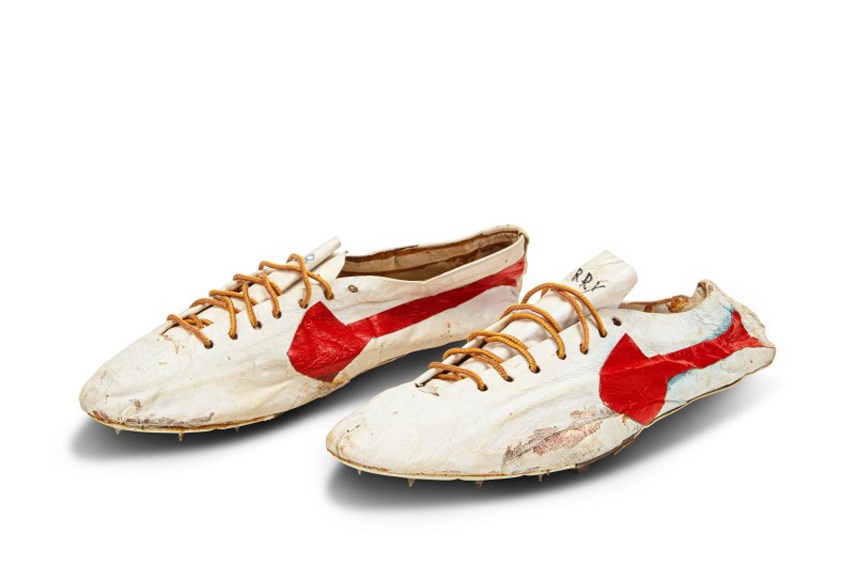Produced in the 1960s and constructed from leather, glue, tape, rubber and metal, the shoes were made by Bill Bowerman, a track and field coach who at one point trained Jerome at the University of Oregon.
A noted innovator when it came to shoe ingenuity and design, in addition to his coaching, Bowerman went on to co-found Blue Ribbon Sports, later known as Nike, in 1964.
The shoes are expected to fetch between US$800,000 and $1.2 million later this month, according to Sotheby’s.
Obsessed with weight and performance, Bowerman would “build shoes for his University of Oregon runners from scratch, often using an assemblage of raw materials,” according to Sotheby’s.
It is unclear to what degree Jerome wore the prototype shoes as part of his training or competitions, but his sister, Valerie Jerome, believes he wore a finished version of the shoes during the Pan American Games in 1967.
“He loved them,” said Jerome, reached by the North Shore News. “He and Bill Bowerman were remarkably close. It was an amazing relationship.”
The pair features four prototype logos, which bear a resemblance to the famous Nike “Swoosh,” which later became the company's logo. Jerome’s name can also be seen scrawled across the tongue of one of the shoes.
The shoes also feature waffle soles under each set of track spikes, which was the first notable innovation introduced by its makers when they premiered the Nike Moon Shoe at the 1972 Olympic trials.
The Jerome family moved from Winnipeg to North Vancouver in 1951. Jerome attended the University of Oregon on a track scholarship from 1960 to 1964.
There was a point during the ’60s where Jerome held a legitimate claim to the title of world’s fastest man, setting a total of seven world records over his career.
He also earned bronze in the 1964 Olympic Games in the 100-metre dash and gold at the 1966 Commonwealth Games and 1967 Pan American Games. He retired from running in 1968.
The upper part of the prototype shoes shows wear, but the waffles, spikes and bottoms appear to be in mint condition, according to Sotheby’s.
“I thought my brother was great, so anything that’s keeping his name alive, for me, is great,” said Valerie, though she did balk at the extraordinary bidding price the shoes were set at. “I think that’s the American way, isn’t it?”
Bidding opens on the shoes, as part of the auction house’s Olympic Collection, on July 23.
The North Shore News has reached out to Sotheby’s for comment.



